Communication, Media and Politics
UCAS code LP29
- Study mode
- Full-time
- Duration
- 3 years
- Start date and application deadlines
-
- Start date
UCAS code LP29
The world we live in is dominated by media in many forms: through news and social media to politics and promotion, the media shapes our understanding of what we know and what we consume. This programme is particularly relevant to students interested in the intersection of communication, media and politics.
You will explore communication theories, political ideas, systems and processes and you will learn how to develop knowledge, construct arguments and communicate your findings in different ways. Whether you want to work in one of these areas, to research their impact or simply to understand more about our relationship with media, this programme provides a thorough introduction with plenty of opportunities to develop specialist skills.
A range of optional modules allows you to choose a range of topics from political science and communication and media. We teach all of our students to acquire strong research skills, and you’ll have the opportunity to practice them through independent or collaborative research.
This programme is available with a Year in Industry. Year Three is spent on a paid placement within an organisation in industry, broadly defined. You will be supported by the School of the Arts and the Department throughout, and your reflexive written account of the experience will contribute towards your final degree result. If you wish to study this programme with a Year in Industry, please put the option code ‘YI’ in the ‘Further Choices’ section of your UCAS application form.

We’re proud to announce we’ve been awarded a Gold rating for educational excellence.
Discover what you'll learn, what you'll study, and how you'll be taught and assessed.
Your first year consists of entirely compulsory modules, through which you’ll build the foundation for the rest of your studies.
You will take 120 credits in each year. If studying the Year in Industry pathway, your third year will be spent on placement.
Programme details and modules listed are illustrative only and subject to change.
You will take 60 credits of modules from Communication and Media, and 60 credits from Politics.
| Compulsory modules | Credits |
|---|---|
| COMMUNICATION AND MEDIA RESEARCH I (COMM207) | 15 |
| COMMUNICATION AND MEDIA RESEARCH II (COMM208) | 15 |
Programme details and modules listed are illustrative only and subject to change.
You will take half of your modules in Communication and Media, and the other half in Politics.
Programme details and modules listed are illustrative only and subject to change.
Communication and Media: Weekly lectures and seminar discussions may be supplemented by screening sessions, presentations and opportunities for group work where appropriate. We regularly invite expert speakers and practitioners to speak to our students about their work. Some modules also make use of our specialist equipment or software.
Dissertation and work placement modules involve more independent study, but always under the careful individual supervision of a member of academic staff.
Politics: Research-connected teaching is initiated in the first year with introductions to quantitative, qualitative, theoretical, and critical methodologies, which are then embedded in second- and final-year modules so that students can evaluate and apply the methodologies to construct their own analyses. Though our lectures are interactive, our seminars, workshops, computer lab sessions, dissertations, and placements form the core of our active learning approach.
Communication and Media: We are committed to using a range of different forms of assessment, so types of assessment vary widely from module to module. Depending on your choice of modules, these may include coursework projects, essays, blogs, reports, literature reviews, writing exercises, presentations, online tests and unseen examinations.
Politics: We use a rich variety of assessment methods to develop students’ various skills. Essays, exams, and presentations enable to students to practice core academic writing and speaking skills, while innovative assessments such as blog posts, reflective logs, group projects, podcasts, radio broadcasts and speeches expand our authentic assessment, enabling students to deploy transferable skills in various formats. Digital fluency is also developed in different ways, including sourcing relevant material, using online learning platforms and tools, producing audio and visual materials, word processing and statistical analysis.
We have a distinctive approach to education, the Liverpool Curriculum Framework, which focuses on research-connected teaching, active learning, and authentic assessment to ensure our students graduate as digitally fluent and confident global citizens.
The Liverpool Curriculum framework sets out our distinctive approach to education. Our teaching staff support our students to develop academic knowledge, skills, and understanding alongside our graduate attributes:
Our curriculum is characterised by the three Liverpool Hallmarks:
All this is underpinned by our core value of inclusivity and commitment to providing a curriculum that is accessible to all students.
The qualifications and exam results you'll need to apply for this course.
| Qualification | Details |
|---|---|
| A levels |
BBC |
| GCSE |
4/C in English and 4/C in Mathematics |
| BTEC Level 3 national extended diploma |
DDM. |
| BTEC combinations |
BTEC National Diploma DM plus B at A level; BTEC National Extended Certificate M plus BB at A level. |
| Welsh Baccalaureate Advanced |
C in the Welsh Baccalaureate, plus BB at A level |
| Access |
Pass relevant Access to HE Diploma with 45 Level 3 credits with 27 at Distinction and 18 at Merit |
Studying with us means you can tailor your degree to suit you. Here's what is available on this course.
University of Liverpool students can choose from an exciting range of study placements at partner universities worldwide. Choose to spend a year at XJTLU in China or a year or semester at an institution of your choice.
Immerse yourself in Chinese culture on an optional additional year at Xi'an Jiaotong Liverpool University in stunning Suzhou.
Broaden your world by spending an additional year of study at a partner university abroad following your second year of study.
Take a semester of your second year of study at one of our worldwide partner institutions.
Spend a summer abroad on a study placement or research project at one of our worldwide partner institutions.
Year in industry placements give you an in-depth workplace experience where you can develop your skills and apply your learning.
You don't need to decide now - you can choose to add a year in industry after you've begun your degree.
Learn more about year in industry
To spend a year in industry, you'll need to secure a placement with an organisation. If you're unable to find a placement, you'll continue with the standard version of the course without a year in industry.
Every student at The University of Liverpool can study a language as part of, or alongside their degree. You can choose:
As a student of both Communication and Media and Politics, you will be taught in a variety of buildings across campus. Both Departments are based in Abercromby Square, and will provide you with support and guidance from your very first day.
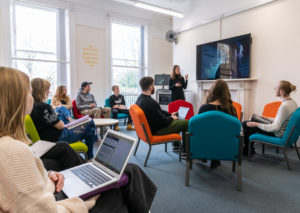
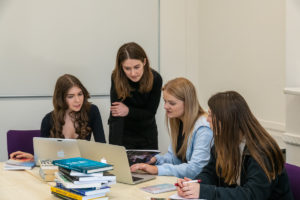
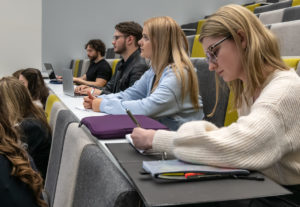
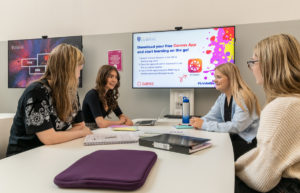
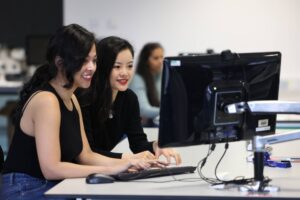
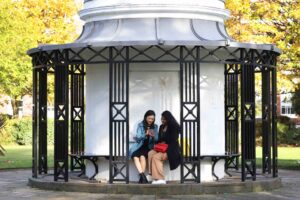
From arrival to alumni, we’re with you all the way:

Want to find out more about student life?
Chat with our student ambassadors and ask any questions you have.
This degree will open you to a myriad of jobs in media-related industries and you will have opportunities to undertake a relevant work placement or their own independent research. Many of our modules seek to develop practical skills – such as media writing, blogging, analysis of social media data and video-making.
Our graduates have gone on to careers including:
Former graduates include a television documentary maker, a BBC Radio 1 DJ, senior journalists at local and national newspapers, a partner in a New York-based advertising company, and the features editor of a music weekly.
Hear what graduates say about their career progression and life after university.
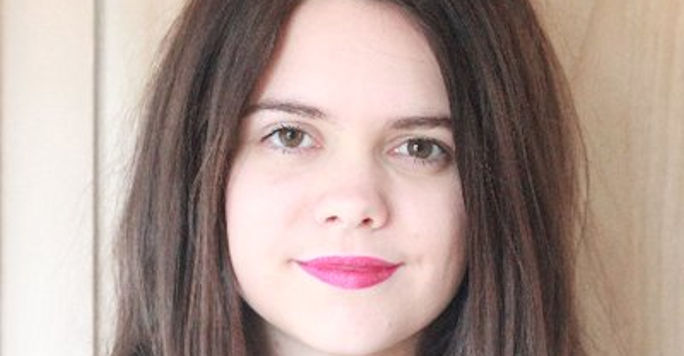
Emma is a Production Management Assistant on the One Show.
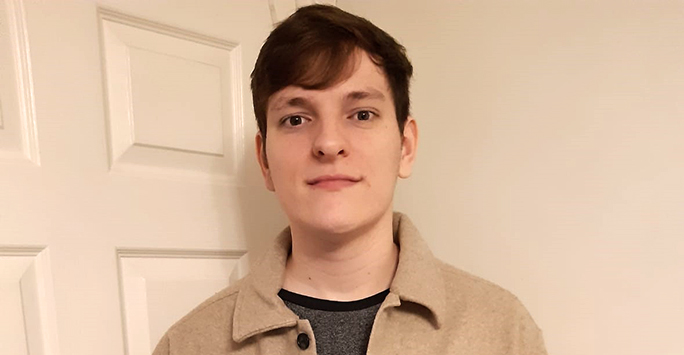
Joe Edge is a BA (Hons) Communication and Media graduate, now working as a Social Media Marketing Assistant at USP Creative in Liverpool.
Your tuition fees, funding your studies, and other costs to consider.
Full-time place, per year - £9,535
Year in industry fee - £1,905
Year abroad fee - £1,430 (applies to year in China)
Full-time place, per year - £24,100
Year in industry fee - £1,905
Year abroad fee - £12,050 (applies to year in China)
The tuition fees shown are correct for 2025/26 entry. Please note that the year abroad fee also applies to the year in China.
Tuition fees cover the cost of your teaching and assessment, operating facilities such as libraries, IT equipment, and access to academic and personal support. Learn more about paying for your studies.
We understand that budgeting for your time at university is important, and we want to make sure you understand any course-related costs that are not covered by your tuition fee. This could include buying a laptop, books, or stationery.
Find out more about the additional study costs that may apply to this course.
We offer a range of scholarships and bursaries that could help pay your tuition and living expenses.
If you’re a UK student joining an undergraduate degree and have a household income below £35,000, you could be eligible for a Liverpool Bursary worth up to £2,000 for each year of undergraduate study.
Apply for an Asylum Seekers Scholarship and you could have your tuition fees paid in full and receive help with study costs. You’ll need to have applied for asylum in the UK, or be the dependant of an asylum seeker, and be joining an eligible undergraduate degree.
If you’ve spent 13 or more weeks in Local Authority care since age 14, you could be eligible for a bursary of £3,000 per year of study. You’ll need to be a UK student joining an eligible undergraduate degree and be aged 28 or above on 1 September in the year you start.
Are you a UK student with a Black African or Caribbean heritage and a household income of £25,000 or less? You could be eligible to apply for a Cowrie Foundation Scholarship worth up to £8,000 for each year of undergraduate study.
If you’re a UK student identified as estranged by Student Finance England (or the equivalent UK funding body), you could be eligible for a bursary of £1,000 for each year of undergraduate study.
Joining a School of Biosciences degree and have a household income of less than £25,000? If you’re a UK student, you could apply to receive £4,500 per year for three years of your undergraduate course.
Do you live in the Liverpool City Region with a household income of £25,000 or less? Did neither of your parents attend University? You could be eligible to apply for a Nolan Scholarship worth £5,000 per year for three years of undergraduate study.
Are you a UK student with a household income of £25,000 or less? If you’ve participated in an eligible outreach programme, you could be eligible to apply for a Rigby Enterprise Award worth £5,000 per year for three years of your undergraduate degree.
Are you a UK student with a household income of £25,000 or less? Did neither of your parents attend University? You could be eligible to apply for a ROLABOTIC Scholarship worth £4,500 for each year of your undergraduate degree.
Apply to receive tailored training support to enhance your sporting performance. Our athlete support package includes a range of benefits, from bespoke strength and conditioning training to physiotherapy sessions and one-to-one nutritional advice.
Joining a degree in the School of Electrical Engineering, Electronics and Computer Science? If you’re a UK student with household income below £25,000, you could be eligible to apply for £5,000 a year for three years of study. Two awards will be available per academic year.
If you’re a young adult and a registered carer in the UK, you might be eligible for a £1,000 bursary for each year of study. You’ll need to be aged 18-25 on 1 September in the year you start your undergraduate degree.
Use our handy chatbot for your Clearing enquiries.
Last updated 17 June 2025 / / Programme terms and conditions